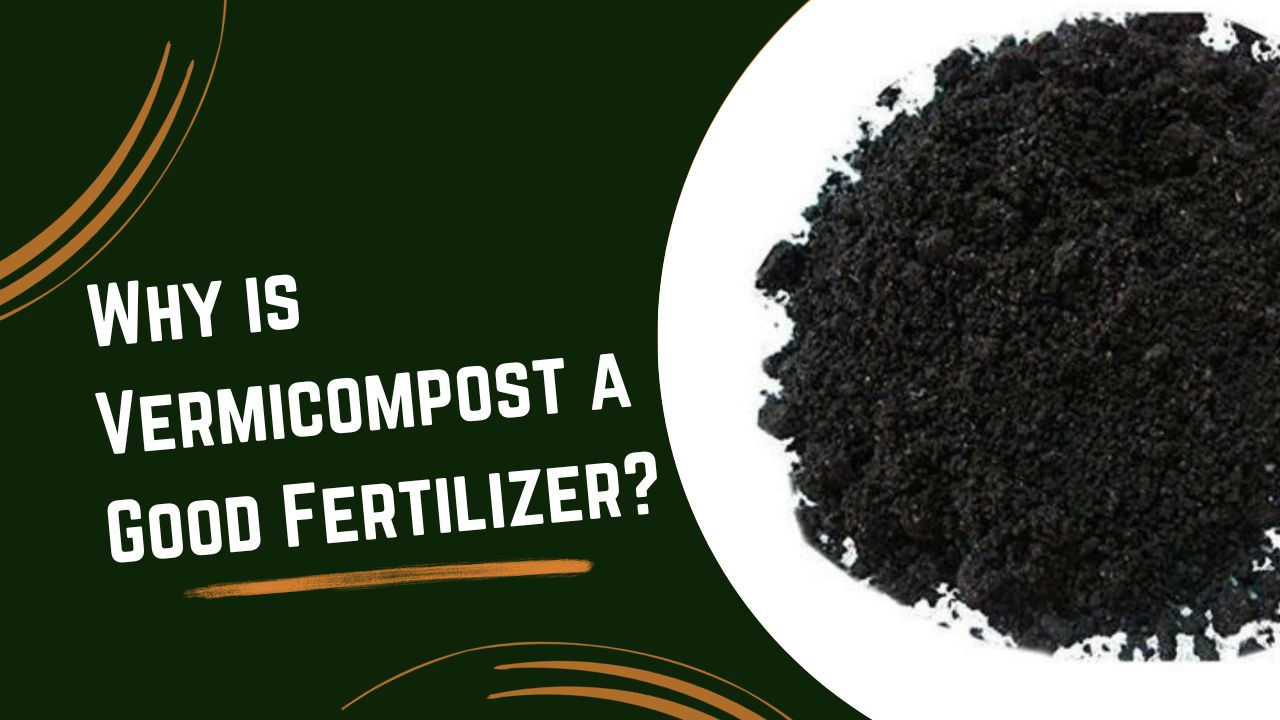Vermicompost, often referred to as “black gold” in the world of gardening and agriculture, is a nutrient-rich organic fertilizer produced through the process of vermicomposting. This natural and eco-friendly approach to soil enrichment has gained popularity over the years, owing to its numerous benefits. In this article, we’ll explore why vermicompost is considered a good fertilizer and its advantages over traditional compost.
Understanding Vermicomposting
Vermicomposting is the process of using earthworms, typically red wigglers or Eisenia fetida, to decompose organic waste materials into nutrient-rich humus. These earthworms consume the organic matter and, through their digestion, transform it into a valuable soil conditioner and fertilizer.
Benefits of Vermicompost
Enhances Soil Fertility
One of the primary benefits of vermicompost is its ability to enhance soil fertility significantly. The nutrient content in vermicompost is higher than that in traditional compost, making it an excellent choice for boosting plant growth and overall soil health.
Improves Soil Structure
Vermicompost also improves soil structure by increasing its water-holding capacity and aeration. It helps prevent soil compaction, ensuring that plant roots have access to the air and water they need for optimal growth.
Reduces Chemical Dependency
By enriching the soil with organic nutrients, vermicompost reduces the need for chemical fertilizers, which can harm the environment and lead to soil degradation. This sustainable practice promotes healthier, chemical-free agriculture.
Vermicompost vs. Traditional Compost
While traditional composting is effective, vermicompost offers distinct advantages, such as faster decomposition and higher nutrient levels. Vermicomposting is also less labor-intensive and can be done in smaller spaces, making it a great choice for urban gardening.
How to Start Vermicomposting
Choosing the Right Worms
Selecting the appropriate worm species is crucial for successful vermicomposting. Red wigglers are the most commonly used worms due to their high composting efficiency.
Setting up a Bin
Creating a suitable environment for the worms is essential. Vermicompost bins can be purchased or easily made at home, providing the worms with the right conditions.
What to Feed the Worms
Earthworms thrive on kitchen scraps like fruit and vegetable peels, coffee grounds, and eggshells. Avoid feeding them meat, dairy, and oily foods.
Maintaining Proper Conditions
Maintaining the right moisture and temperature levels is key to successful vermicomposting. Regularly check and adjust the conditions in the bin as needed.
Vermicompost as an Eco-Friendly Choice
Vermicomposting is an eco-friendly alternative to traditional waste disposal methods. It reduces landfill waste, minimizes greenhouse gas emissions, and conserves natural resources, making it a sustainable choice for conscientious gardeners and farmers.
Nutrient-Rich Vermicompost
Vermicompost is rich in essential plant nutrients like nitrogen, phosphorus, and potassium, as well as micronutrients. This balanced nutrient profile enhances plant growth and promotes healthy yields.
Vermicomposting in Home Gardens
Tips for Home Gardeners
For home gardeners, vermicomposting is a valuable tool. Incorporating vermicompost into your gardening routine can lead to healthier plants, increased crop yields, and reduced chemical use.
Harvesting and Using Vermicompost
Harvesting vermicompost is simple. Once the worms have converted the organic matter into dark, crumbly vermicompost, it can be mixed into garden soil or used as a top dressing.
Vermicompost in Commercial Agriculture
Commercial agriculture can also benefit from vermicompost. Large-scale operations can use vermicompost to reduce reliance on chemical fertilizers, improve soil health, and increase crop productivity.
Challenges in Vermicomposting
While vermicomposting is a fantastic practice, it does come with its challenges. Maintaining the right conditions and addressing potential issues, like pest infestations, can be demanding.
Verifying the Quality of Vermicompost
To ensure you’re getting high-quality vermicompost, it’s essential to verify its source and quality. Look for certified organic vermicompost and check for any potential contaminants.
Common Misconceptions about Vermicompost
There are some common misconceptions about vermicompost, such as concerns about odor and difficulty. However, when done correctly, vermicomposting is odorless and relatively easy.
Conclusion: The Green Revolution with Vermicompost
In conclusion, vermicompost is a game-changer in the world of agriculture and gardening. Its ability to enhance soil fertility, improve soil structure, and reduce chemical dependency makes it a superior choice for soil enrichment. By embracing vermicomposting, we can contribute to a greener and more sustainable future for agriculture.
Frequently Asked Questions (FAQs
Is vermicompost suitable for all types of plants?
Vermicompost is generally suitable for a wide range of plants, from vegetables and herbs to flowers and trees.
How long does it take to produce vermicompost at home?
The time required to produce vermicompost at home varies but typically ranges from 2 to 6 months.
Can I use vermicompost as the sole fertilizer for my garden?
While vermicompost is rich in nutrients, it’s often used in conjunction with other fertilizers to provide a balanced nutrient profile.
Are there any safety concerns when handling vermicompost?
Handling vermicompost is safe, but it’s essential to wash your hands after touching it, just as you would with any soil or compost.
Read More: How to Use Cow Dung Manure for Plants





